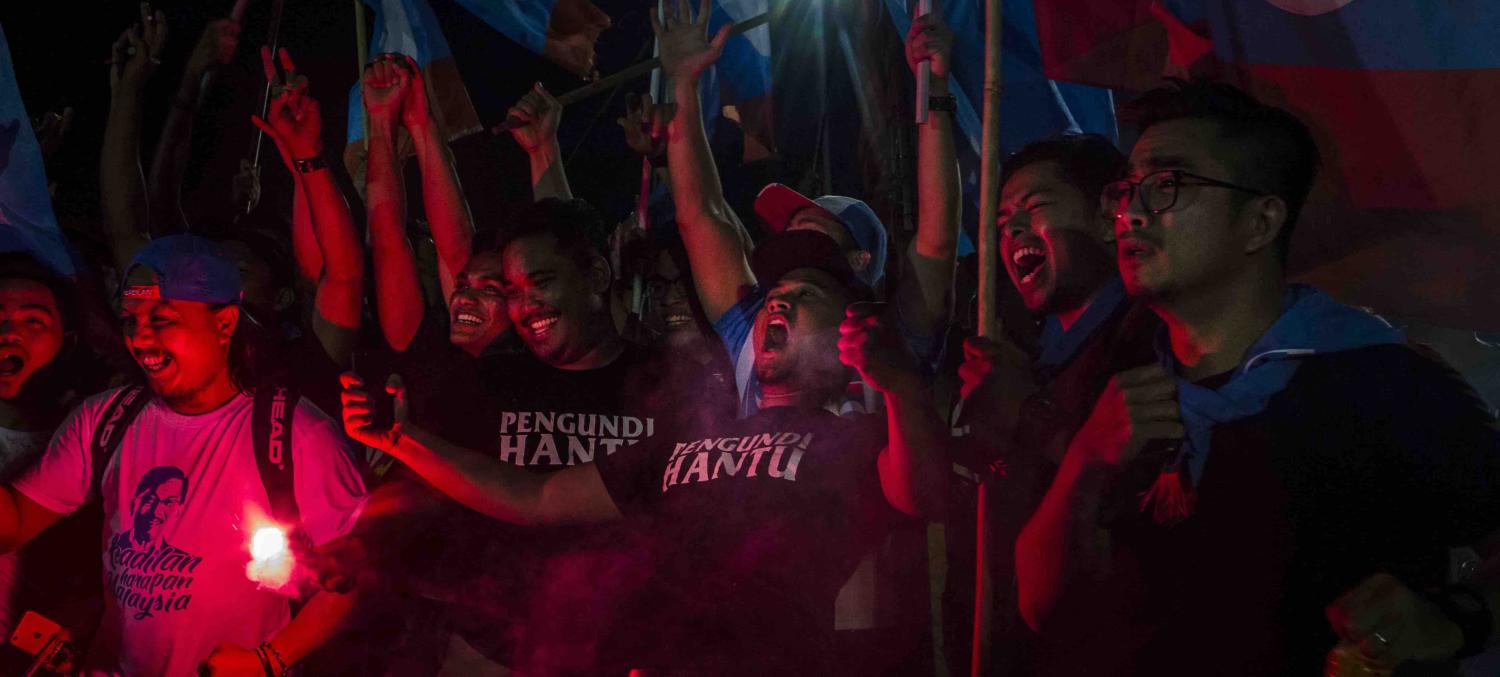The week that was on The Interpreter.
Three families conducted terrorist attacks aimed at churches in Indonesia, inspired by the example of ISIS. Sidney Jones:
From the beginning, ISIS has been a family affair. The caliphate deliberately encouraged whole families to migrate – berhijrah – to Syria so fathers could fight, women could reproduce, teach or treat the wounded, and children could grow up in a pure Islamic state. Indonesians, along with many others around the world, responded enthusiastically.
Robert Kelly reflects on his conversations about North Korea in Australia:
Perhaps we should nonetheless assent to a peace treaty. I am unsure myself. North Korea has boxed us with its spiralling nuclear weapons program, and some kind of deal is better than last year’s march to war. But let us be honest about what “peace” means – a massive diplomatic concession to the North. We should at least bargain very hard for this.
On 11 May, the Supreme Court of the Philippines removed its own Chief Justice, Maria Lourdes Sereno, from office. Imelda Deinla, Veronica Taylor, and Steven Rood:
It appears the Duterte administration’s ultimate goal is to undermine the broader architecture of constitutional democracy. The dismissal of Sereno adds the judiciary to the list of compromised institutional checks and balances under Duterte.
US President Donald Trump and his Chinese counterpart Xi Jinping continued their unpredictable trade negotiations this week, with “fairness” at the centre of US rhetoric. Roland Rajah:
If China is breaking rules it agreed to at the World Trade Organisation, this ought to be challenged as part of upholding a rules-based system. That may be the case with some technology-licensing rules and informal state pressure to transfer technology. Equally though, the rules require the US to challenge this at the WTO, not unilaterally.
In Malaysia, fallout from the surprise defeat of Najib Razak’s Barisan Nasional coalition to Mahathir Mohamad’s Pakatan Harapan alliance continued. Amrita Malhi:
Externalising the Chinese threat allowed Mahathir to craft a campaign message that Malaysians are a multiracial people throwing out a corrupt government selling the nation to China in exchange for its bailout of Najib’s scandalous 1MDB debt. Now, however, the campaign is over, and Mahathir has announced to the world that Malaysia is open to most foreign investment, whatever its national and ideological origins.
Timor-Leste also held an election, with Xanana Gusmão’s AMP alliance ousting the Fretilin government. Sophie Raynor:
Timor-Leste’s resistance-era leaders have contributed significantly to their country, and their continuing influence is understandable. But rising public sentiment is calling for new, young leadership – which can clearly only be meaningfully delivered with the endorsement and will of titans such as Gusmão.
Papua New Guinea will host the 2018 APEC summit in November during a time of economic distress for the country. Watna Mori:
In the absence of accurate government facts and figures on the economic benefits these commitments will bring to PNG in real terms, it is difficult to be enthusiastic about immense government expenditure on only a few days’ meetings.
Geoff Heriot on the ABC’s role in Australian soft power:
Once a significant player in what the British Council calls the Great Game of the Airwaves, the ABC’s purpose-designed, multiplatform international services have suffered near-terminal decline. This has resulted from two decades of yo-yoing government policy and ABC Board decisions.
China’s first homebuilt aircraft carrier sailed under its own power for the first time. Sam Roggeveen:
Matching the US may not be the point, at least not yet. These carriers will be useful in the Asia-Pacific, where China already has the biggest navy, with the margin of superiority likely to grow. And in the South China Sea, where Beijing’s potential adversaries have weak air and naval forces, the modest capability provided by this new carrier and its sister ship, Liaoning, may be enough to tip the balance.
The nineteenth German Bundestag includes representatives from the far-right Alternative für Deutschland (AfD) party for the first time. Marcus Colla:
Identity debates, of course, are neither new nor unique to Germany. But the twentieth century has demanded a very specific philosophical assessment of what it means to be German. This has conferred a distinctly German shape to the culture wars in which the AfD thrives.
